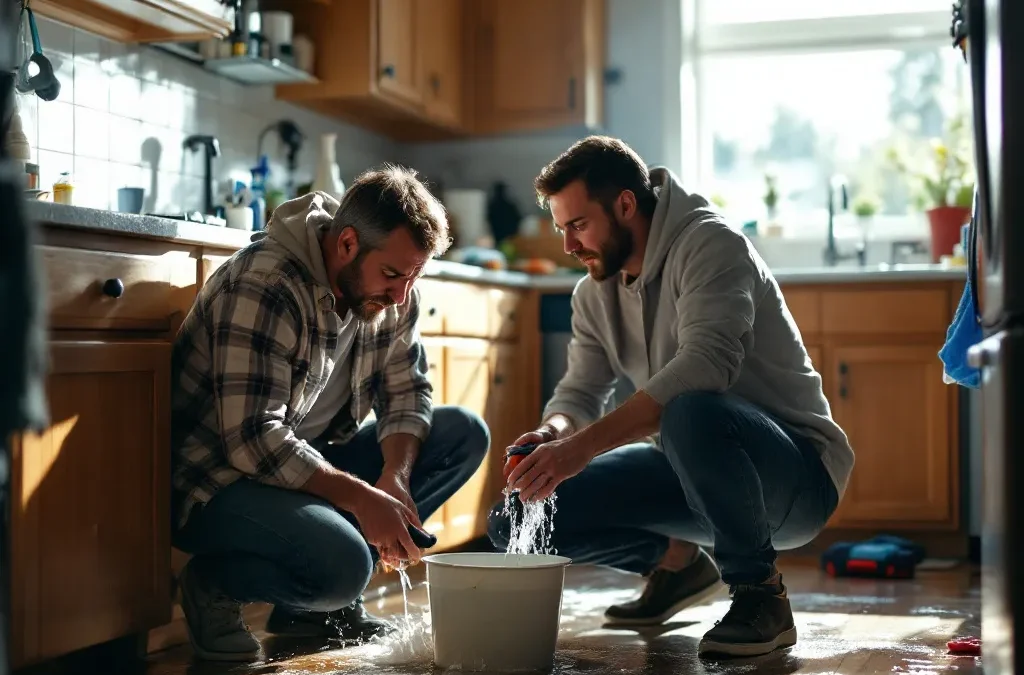Introduction
A drainage emergency refers to any situation involving a malfunction in a plumbing system that causes water to accumulate unmanageably, leading to potential damage. Such emergencies can range from minor leaks to severe flooding, impacting both property and health. Quick action is crucial in these situations, as it can mitigate damage and facilitate faster recovery.
Common Causes of Drainage Emergencies
Understanding the root causes of drainage emergencies can help homeowners recognize potential threats before they escalate. Clogged drains are one of the most common issues, often resulting from the accumulation of hair, grease, or foreign objects. Broken pipes can occur due to age or severe pressure, while tree root intrusions may disrupt underground plumbing systems. Additionally, extreme weather conditions like heavy rains or snowmelt can overwhelm drainage systems, flooding basements and yards. Learn more about how tree roots affect your home’s drainage system.
Immediate Steps to Take During a Drainage Emergency
When faced with a drainage emergency, the first response is to assess the situation. Look for signs such as water pooling in unusual places, gushing leaks, or visible damage to walls and floors. Based on your evaluation, decide on the urgency of the response required. Next, shut off the water supply to prevent additional flooding. Once you have halted the water flow, prevent further damage by moving valuables and belongings to higher ground, and utilizing buckets or containers to catch any excess water.
Emergency DIY Solutions
For minor drainage emergencies, there are some emergency DIY solutions you can employ. Start with a plunger to clear minor clogs—this tool can create the pressure needed to dislodge blockages. Alternatively, you can use the baking soda and vinegar method: pour a half-cup of each down the drain, let the mixture sit, and then flush with hot water to break up clogs. For leaks, consider temporary fixes using tape or sealants to cover holes, and plumber’s putty to seal joints until a professional can make a permanent repair.
When to Call a Professional
While DIY fixes can be effective, there are times when calling a professional is necessary. Look for signs you need expert help, such as severe flooding that cannot be contained or persistent odors that indicate ongoing drainage issues. When selecting a service, it’s essential to research local drain service providers. Check for licenses, read reviews, and ask for referrals to ensure you’re choosing a reputable and experienced company. Don’t delay—refer to our 24/7 emergency drain services guide or check for signs you need emergency drain unblocking services.
Preventive Measures to Avoid Future Emergencies
To minimize the risk of future drainage emergencies, establish regular maintenance routines. Schedule professional inspections of your plumbing system at least once a year to catch potential issues early. Along with inspections, incorporate routine cleaning practices, such as regularly flushing drains with hot water and avoiding the disposal of grease or non-flushable items. By practicing responsible drain use, you can effectively manage food waste and help maintain a healthy plumbing system. Explore tips on how preventive drain cleaning can save you money and preventing flood damage through drain maintenance.
Conclusion
In summary, knowing what to do during a drainage emergency can save both your home and peace of mind. First, assess the situation quickly, shut off the water supply, and take immediate steps to prevent further damage. Remember, prioritizing preventive maintenance will help you avoid these situations in the future, ensuring your home remains safe and comfortable.
Don’t wait—your drainage emergency deserves fast, professional help. Call us now at (916) 562-2345 to get a quote and protect your home from further damage.


